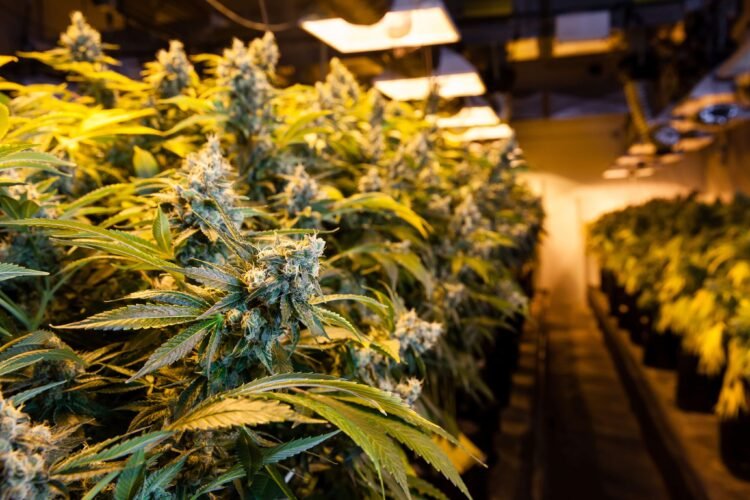Researchers from the College of Basel in Switzerland just lately printed a find out about on April 2 to investigate how scientific hashish legalization within the U.S. has affected the rustic and its sufferers’ well-being.
Entitled “Scientific marijuana regulations and psychological well being in the USA,” researchers sought after to decide the consequences of scientific hashish insurance policies on sufferers through the years. “The results of criminal get admission to to scientific marijuana for people’ well-being are controversially assessed,” researchers wrote. “We give a contribution to the dialogue by means of comparing the affect of the creation of scientific marijuana regulations throughout U.S. states on self-reported psychological well being taking into account other motives for hashish intake.”
Researchers analyzed the responses of seven.9 million individuals who participated in telephone surveys between 1993-2018. This data used to be accrued during the Behavioral Chance Issue Surveillance Gadget, which specializes in knowledge assortment relating to “psychological well-being.” Along with this, researchers additionally applied knowledge accrued by means of the Nationwide Survey on Drug Use and Well being.
Individuals have been positioned in explicit teams, similar to those that have been “extremely prone to abstain from the use of marijuana, to make use of marijuana as a leisure drug, or to make use of it for scientific causes” in an effort to decide the entire have an effect on of scientific hashish legalization on their psychological well being. Moreover, researchers took under consideration the usage of hashish particularly for general persistent ache.
Psychological well being used to be measured by means of asking individuals to self-assess themselves by means of recording what number of days they encountered psychological well being issues throughout the month previous to the overview.
In the end, researchers discovered that scientific hashish legalization had no impact on both leisure customers or formative years. “We discover susceptible proof of sure results on psychological well being because of the liberalisation of scientific marijuana for the U.S. inhabitants general,” researchers wrote of their conclusion. “Whilst the estimated general relief in deficient psychological well being days isn’t statistically important, the outcome nonetheless implies a lack of proof for the essential views that spotlight the danger of irritated psychological well being issues because of MML [medical marijuana laws] introductions.”
“More uncomplicated get admission to improves the psychological well being of people who use marijuana for scientific causes,” said a College of Basel press article. “The similar applies to people who find themselves very prone to be afflicted by ache. The find out about authors estimate that those two teams spend 0.3 days much less monthly in deficient psychological well being because of the alternate within the legislation.”
Professor Alois Stutzer summarized those findings in his personal observation as nicely. “Total, our effects display that scientific hashish regulation in the United States advantages the folk it’s supposed for with out harming different teams,” Stutzer stated. He defined that leisure hashish customers aren’t worse off after legalization, both, and in the long run there’s “a transparent dating between liberalization and psychological well-being.”
Each the U.S. and Switzerland each percentage a federal govt construction. Whilst Stutzer calls the newest find out about an “experimental article” as a result of it will possibly lend a hand pave the best way towards extra research that analyze Switzerland’s long run hashish trade.
The latest find out about best prolonged to knowledge accrued previous to 2018, so it could be attention-grabbing to peer a long run find out about analyze much more fresh knowledge that accompanies the various different states that experience legalized scientific and/or adult-use hashish throughout the previous 5 years.
Switzerland has been undertaking remoted hashish pilot methods to investigate client developments, gross sales patterns, and extra. Just lately on the finish of March, the primary knowledge hooked up to such a methods used to be launched.
The ZüriCan find out about comprises 1,928 individuals who had been licensed to buy hashish for the find out about (a complete of two,100 people can take part). The most recent knowledge shared that of present individuals, 80.7% are males, 18% are ladies, and 1% are nonbinary folks. The demographic disparity used to be no longer a marvel, alternatively, as researchers anticipated there to be an infinite distinction in gender-related customers.
Moreover, researchers discovered that individuals between the ages of 28-32 represented the best share amongst all age teams (the typical age of customers is recently 35 years outdated). “Participation within the find out about appears to be in particular sexy for individuals who eat incessantly,” researchers wrote. “Alternatively, individuals who best use hashish a couple of occasions a month additionally participate within the find out about. This may occasionally permit us to check folks with other intake behavior in our find out about.”
This system knowledge additionally confirmed that 6,500 gross sales had been made up to now, with roughly 309 kilos of hashish offered (particular person packs have been to be had best in 5 gram quantities).
Tobias Viegener, the pinnacle of selling Cannavigia, an organization this is operating at once with the Swiss Federal Place of business on Public Well being, advised Forbes concerning the importance of this early knowledge. “The preliminary knowledge from the ‘ZüriCan’ pilot, printed this month, unearths promising insights into the regulated hashish marketplace’s capability and its acceptance amongst individuals,” Viegener stated. “This stage of engagement signifies a favorable reception and an efficient distribution gadget, environment a forged basis for informing long run hashish coverage and legislation.”














